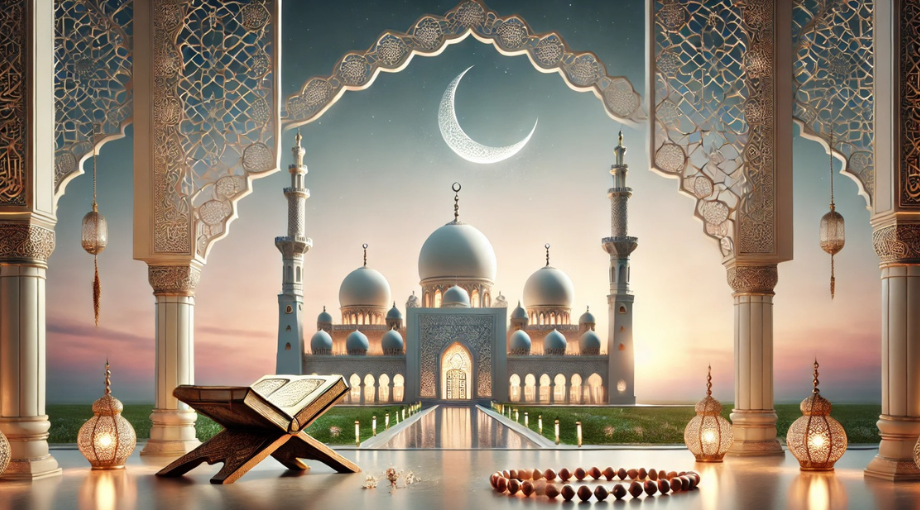The Islamic Association Of Quintana Roo
The Religion of Islam: Beliefs, Practices, and Places of Worship
/
/

The Religion of Islam: Beliefs, Practices, and Places of Worship
Islam is one of the world’s major religions, with more than 1.8 billion followers known as Muslims. This faith is based on the belief in one God, Allah, and follows the teachings of the prophet Muhammad (Mahoma). In this article, we explore the core beliefs of Islam, the importance of mosques as places of worship, and the role of Islamic culture in the lives of Muslims.
What is Islam?
Islam is a monotheistic religion that emerged in the 7th century on the Arabian Peninsula. Muslims believe that Allah is the only true God and that Muhammad is His last prophet, who received the divine revelation through the Quran, the holy book of Islam.
Islam is not only a religion but also a way of life that guides all aspects of a believer’s existence, from spirituality to social and family norms. The faith is built around five essential pillars that all Muslims must observe.
The Five Pillars of Islam
- Shahada: Declaration of faith in one God and that Muhammad is His prophet.
- Salat: Performing five daily prayers.
- Zakat: Giving alms to the needy.
- Sawm: Fasting during the month of Ramadan.
- Hajj: Pilgrimage to Mecca at least once in a lifetime, if possible.
Who Was Muhammad and Why Is He Important in Islam?
Muhammad is regarded by Muslims as the final prophet sent by Allah to guide humanity. He was born in the city of Mecca in 570 CE and received his first divine revelation at the age of 40 while meditating in the cave of Hira.
The teachings of Muhammad, as recorded in the Quran, and his way of life, known as the Sunnah, are central to Islamic practice. His life serves as a model for resolving legal and moral questions within the Muslim community.
What is a Mosque, and Why Is It Important?
A mosque (masjid) is the place of worship for Muslims. It is where they gather to perform their prayers and listen to Quranic teachings. Beyond being a space for worship, the mosque also functions as a community center, hosting educational, social, and charitable activities.
Key Features of a Mosque
- Minaret: A tower from which the call to prayer is made.
- Prayer Hall: A large, open space without furniture, oriented towards Mecca.
- Mihrab: A niche in the wall indicating the direction of Mecca.
- Carpets: Used to cover the floor where Muslims perform their prayers.
Islamic Culture and Its Impact on Daily Life
Islamic culture is an essential part of the identity of Muslims, influencing their lifestyle, clothing, traditions, and values. Modest dress, halal food, and the celebration of holidays such as Eid al-Fitr and Eid al-Adha are common cultural expressions within Muslim communities.
Additionally, Islamic culture promotes values such as justice, compassion, and charity. These principles are reflected in daily life through respect for family, community, and people of other beliefs.
Frequently Asked Questions About Islam and Muslims
- Who is Allah in Islam?
Allah is the Arabic word for God. Muslims believe He is the one and only true God, the creator of everything. - What is the Muslim religion?
The Muslim religion is Islam, and its followers are called Muslims. They believe in the divine revelation of the Quran and follow the teachings of the prophet Muhammad. - What is the purpose of a mosque?
Mosques are places of worship and community centers where Muslims gather for prayer and participate in social and educational events. - Who are Muslims?
Muslims are followers of Islam. They can be found all over the world and come from various cultures and ethnic backgrounds. - What is Salat?
Salat is the ritual prayer of Islam, performed five times a day at specific times.
Conclusion
Islam is a religion rich in spirituality and traditions, offering its followers a complete way of life rooted in faith, prayer, and service to the community. The figure of Muhammad and the teachings of the Quran continue to serve as essential guides for Muslims around the world. Through their mosques and culture, Muslims promote values of peace and understanding, contributing to harmonious coexistence in the societies they live in.
